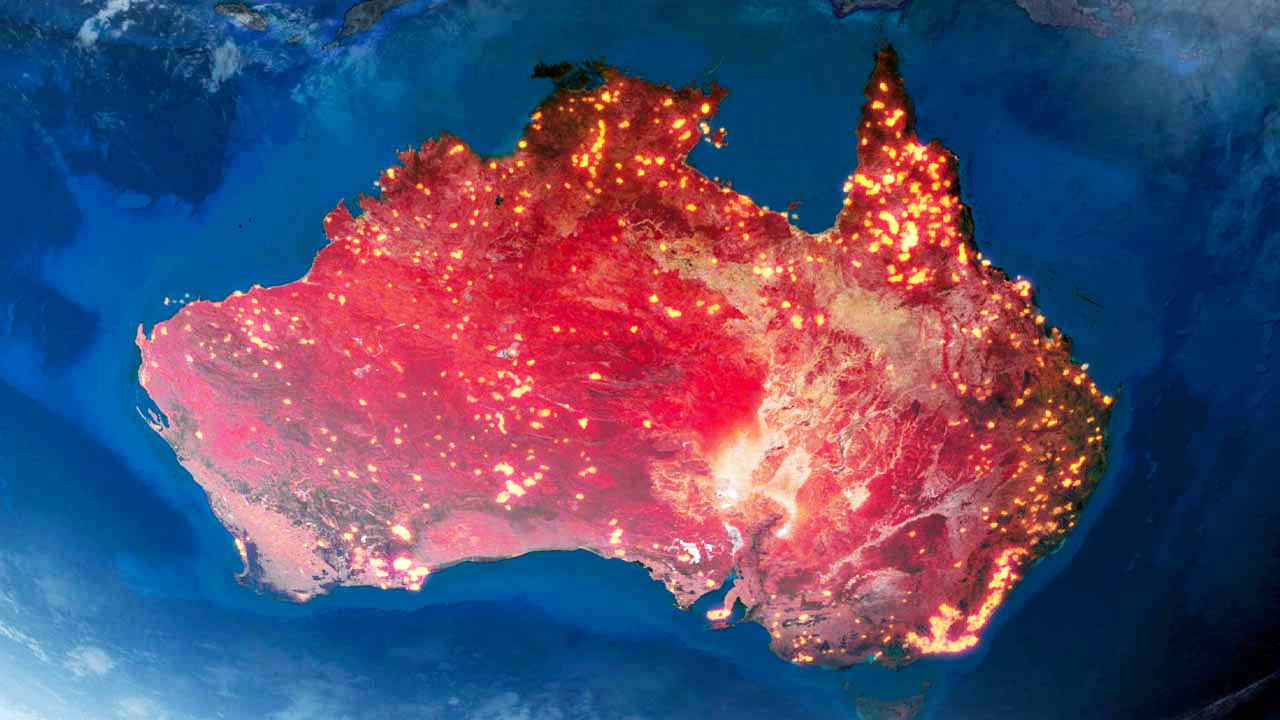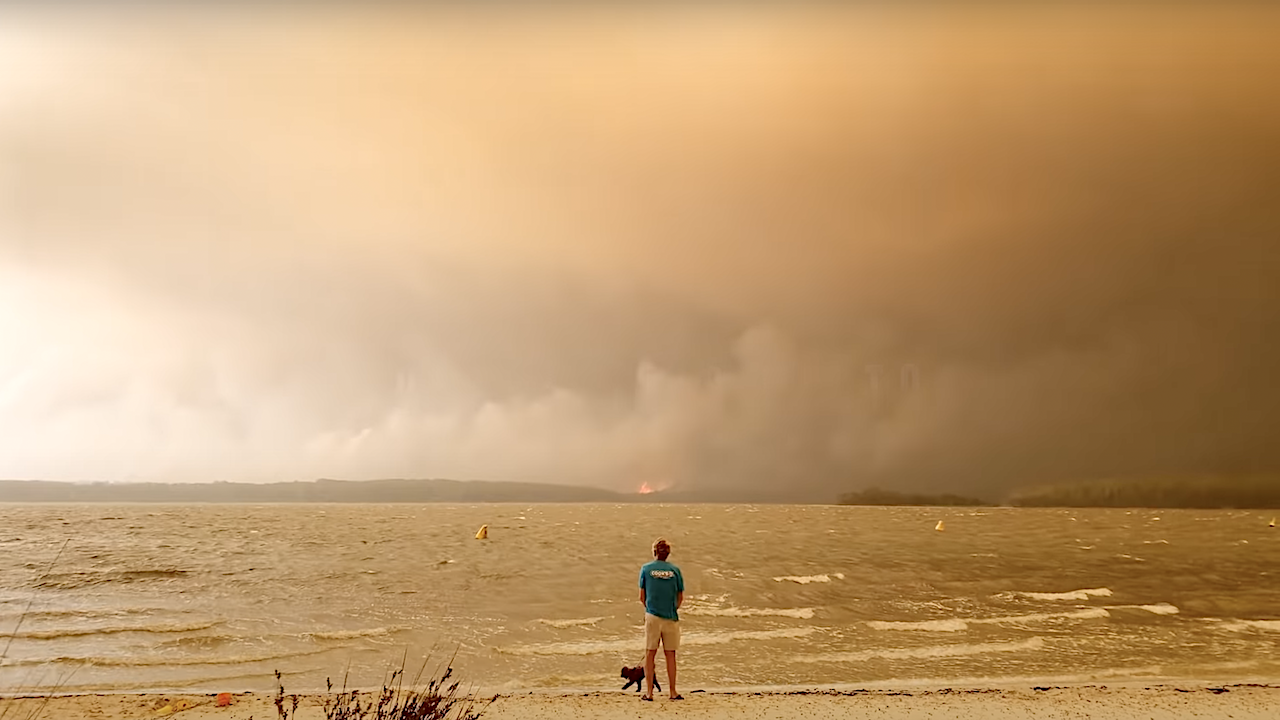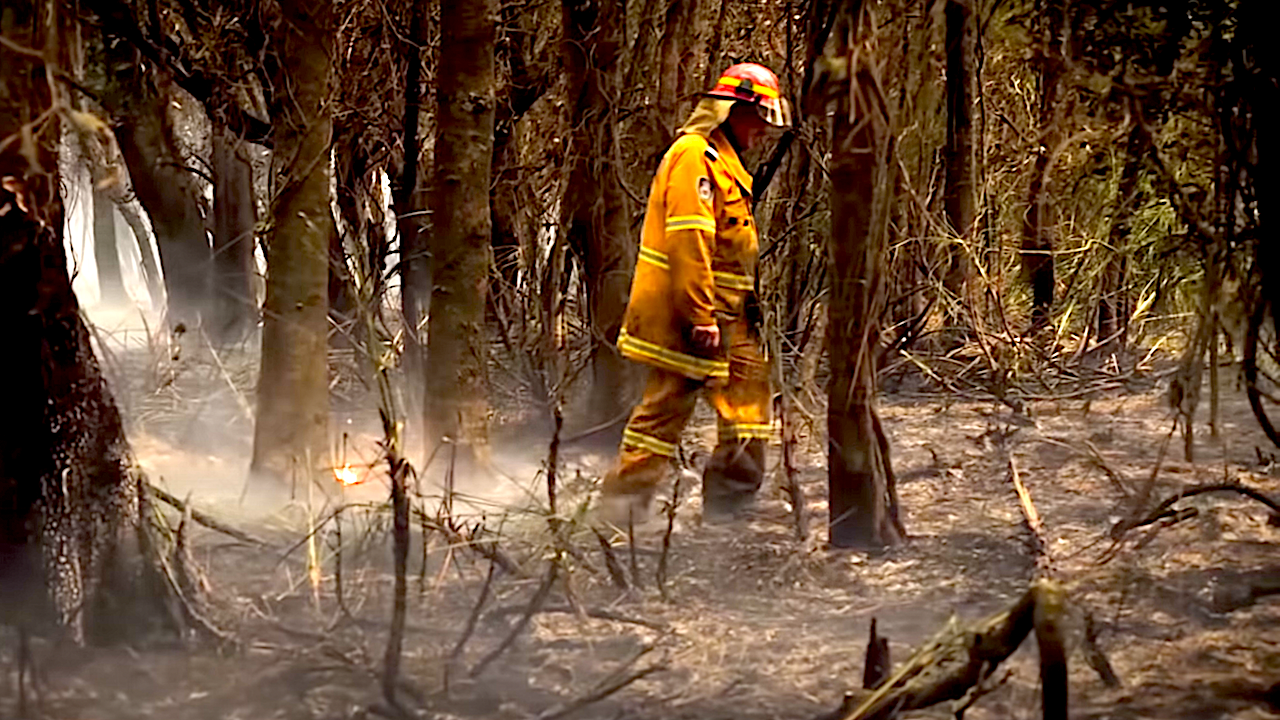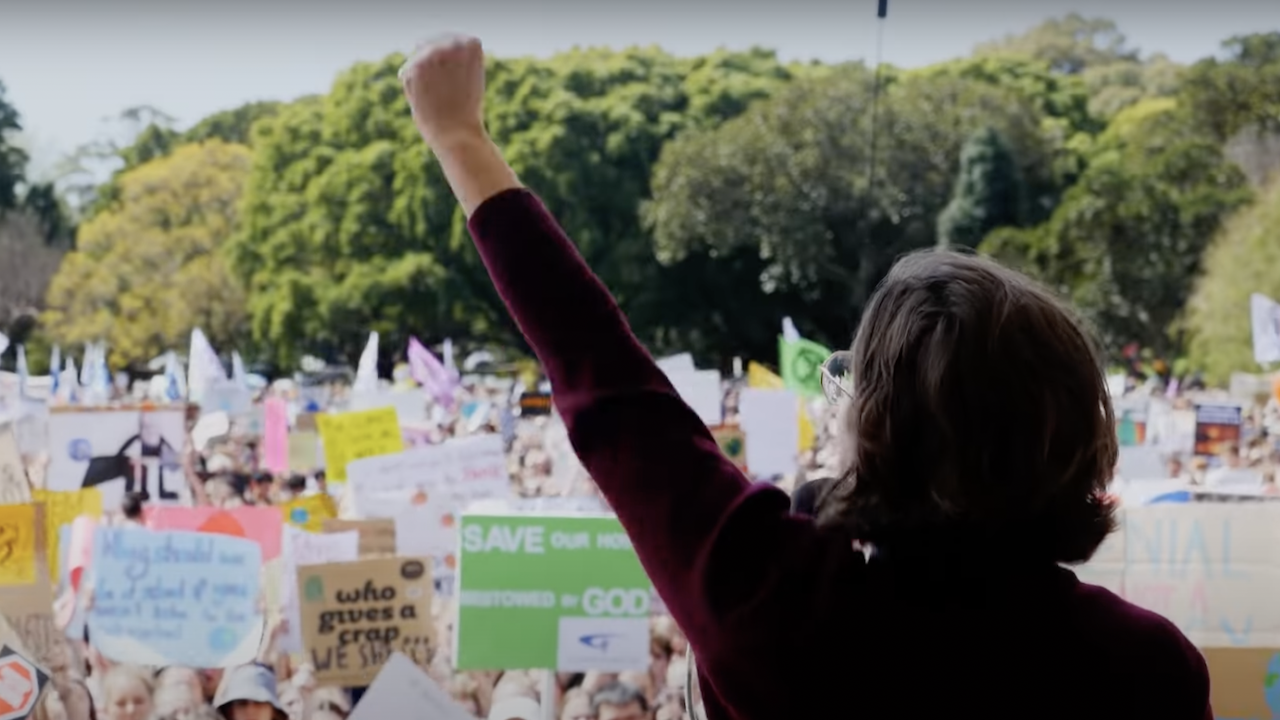Burning is a bloody good climate change documentary – but will it make any difference?

Eva Orner’s new doco about the Black Summer bushfires rightly slams our political leaders for their monstrous climate denalism and ecocide. But it’s a case of preaching to the choir, writes Travis Johnson.
Burning is fucking exhausting.
Not because it’s a bad film. It’s a great film. It’s directed by Oscar winner Eva Orner, who knows a thing or two about where to place a camera, and gave us the excellent Chasing Asylum five years back.
Not because it’s not timely: if your brain can penetrate the fog of the pandemic you’ll recall the Black Summer of 2019/2020 saw the skies literally reddened and the streets choked with ash, as roughly 20% of the bushland on Australia’s East Coast went up in flames.
My key memory of that summer was fronting up to the Amazon Prime Christmas party, which for reasons that still baffle me was held at an outdoor venue, and watching flecks of ash drift into my champagne flute. Some real Masque of the Red Death vibes going on there.
No, Burning is exhausting because it’s preaching to the choir. The people who are receptive to its warnings, its political position, and the actual scientific consensus that we are continuing to screw the planet into a cocked hat are already on board. The people we need to convince—our political and economic leaders who are blindly beholden to a moribund fossil fuel industry, and their electoral base—are either not going to spring for a ticket/cue the thing up when it drops on Prime Video, or are going to deride and dismiss the content altogether.

Up in smoke
It’s the “deride and dismiss” component that irks. Candid footage of Australians fleeing to the beaches ahead of the fire front, and standing weeping in the ruins of their lives? A once in a lifetime event, apparently. Tim Flannery, former Climate Commissioner, on hand to point out that we’ve been aware of the downward spiral for literally decades? The climate deniers say he’s an alarmist and a shill (as Burning points out, one of the Abbott government’s very first acts was to disband the Climate Commission in 2013).
Former Fire and Rescue Commissioner of New South Wales Greg Mullins, a man who has held a hose for decades, describing his own history fighting bushfires and how he warned his superiors about the dangerous conditions mounting up years in advance? It’s the Greens’ (Or, more generally, greenies’) fault for not allowing back-burning (a straight-up lie, but one often repeated). Young climate activist Daisy Jeffries speaking to thousands upon thousands of striking students? Kids wagging school.

I know these (ignorant, puerile, pants-on-head stupid) counterpoints because I saw them all on social media when the half the country was on fire, and if the fact that we couldn’t see the sun clearly for three months wasn’t enough to stop the idiots from ticking off the Right Wing Numpty Talking Point Checklist, I’m not sure what a doco two years after the fact will do. Maybe, just maybe, the segment of the film dealing with the effects of bushfire smoke on pregnant women will move the needle a little bit. Surely descriptions of placentas as shrivelled and blackened as pack-a-day lungs, and the notion of underweight babies being put on growth hormone supplements, will raise the odd eyebrow.
Pointing the finger at political greed and apathy
But I doubt it, and that’s because climate change is yet another political front, subject to us-vs-them tribalism. For a surprisingly large number of people, if the price of Us beating Them is living out your later years as an extra in the opening scenes of Fury Road, it’s an acceptable one.
Burning makes no bones about laying the blame for our climate woes at the feet of the LNP. We’re presented with a Weakest Hits medley of scenes from the Party of Responsibility’s ongoing war against responsible climate policy, including such bangers as “Scomo Brings a Lump of Coal into Parliament”, although I am personally more partial to the Double A Side “Firey from Nelligen Speaks His Mind/PM Called a Fuckhead on Live TV“. That’ll be enough to turn off many; heaven forfend that the people responsible for implementing climate policy might actually have to shoulder the blame for the negative outcomes of that policy.
Climate change deniers are in the business of denying climate change, whether on a professional (that’ll be the fossil fuel lobby and their pet cowards in parliament) or amateur (the idealogues happy to cough smoke in order to own the left) basis. If well-mounted, persuasive, fact-backed arguments worked, deniers wouldn’t be who they are—it’s not like Burning is the first cab off the rank.

How can we sleep while our beds are burning?
It’s difficult to say what rhetorical devices might work, if any. The ABC’s recent drama Fires? While it dramatised Black Summer (poorly, IMHO) and arguably reached a different and more politically diverse audience at Aunty than are likely to turn out for Burning, it also stepped carefully around the notion that climate change caused the disaster, instead focusing on the more immediate narrative grist at hand. The recent documentary A Fire Inside similarly looks at the boots-on-the-ground battle, framing the fire as an enemy to be beaten rather than as a symptom of a systemic, chronic, and growing problem.
Ironically, sidestepping the issue makes works about the results of the issue more palatable for many. It’s a classic Catch-22: if we don’t talk about climate change, we’re ignoring the single most pressing issue currently facing humanity. If we do, a large swathe of the audience immediately gets their back up and stops listening—and those are the people most in need of convincing.
Burning may be about an event two years past, but it’s also about our current moment, immediately in the wake of the Glasgow UN Climate Change Conference, and we have surely learned that if near-universal international disdain won’t rattle our fossil-fuel-frenzied political leaders, an earnest eco-doc has no chance, no matter how well-articulated its arguments.
Notably, Burning actually screened at COP26, and while it might have made our representatives there look even more backwards to their peers, it certainly didn’t result in anything resembling responsible climate policy at home. So here’s to Burning: a genuinely great film that won’t make a lick of difference.

















